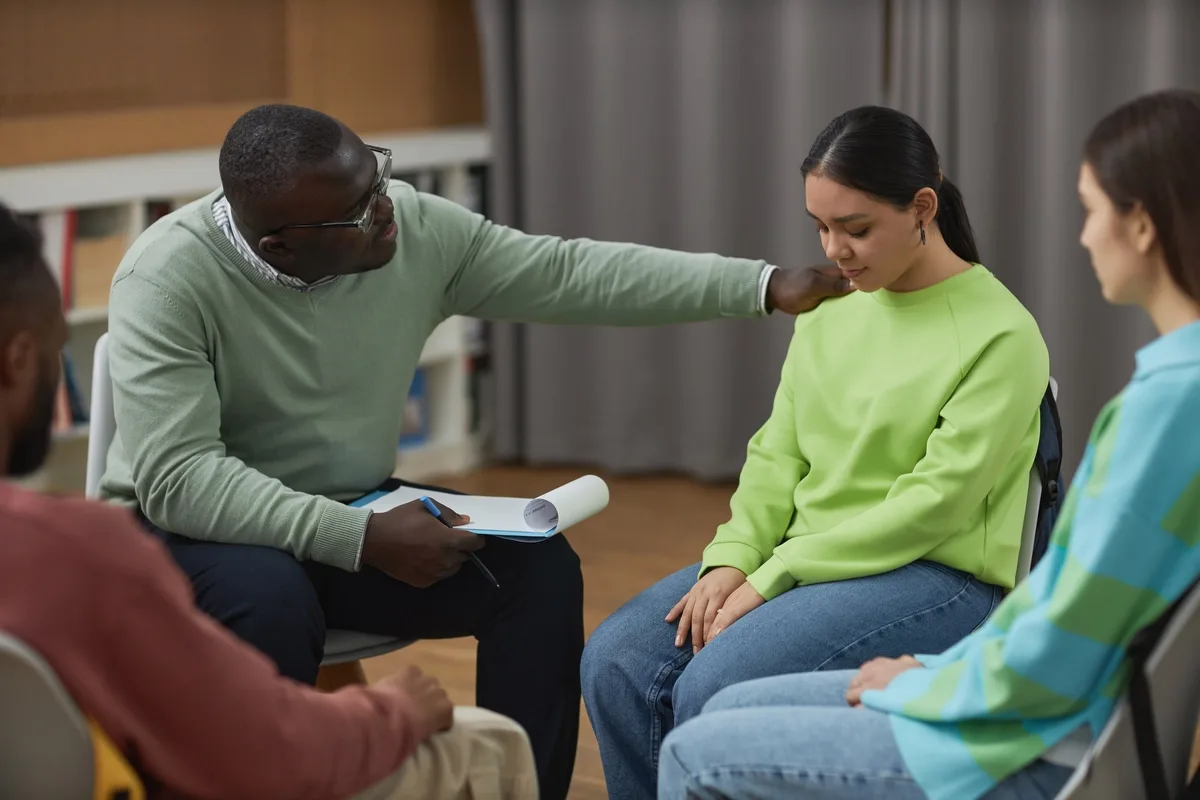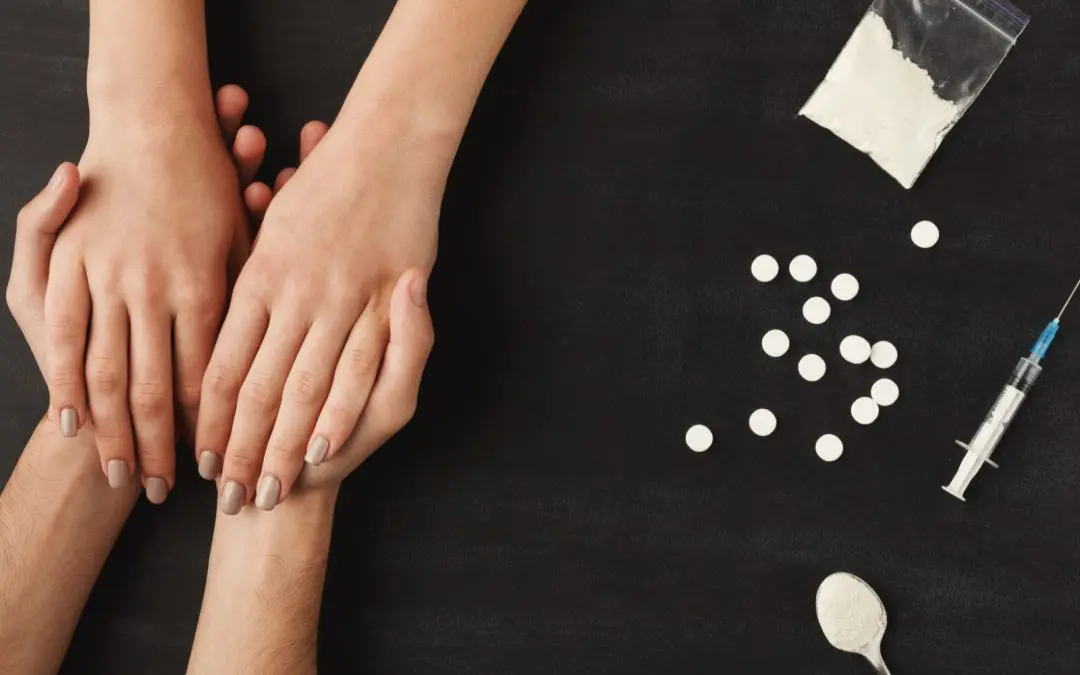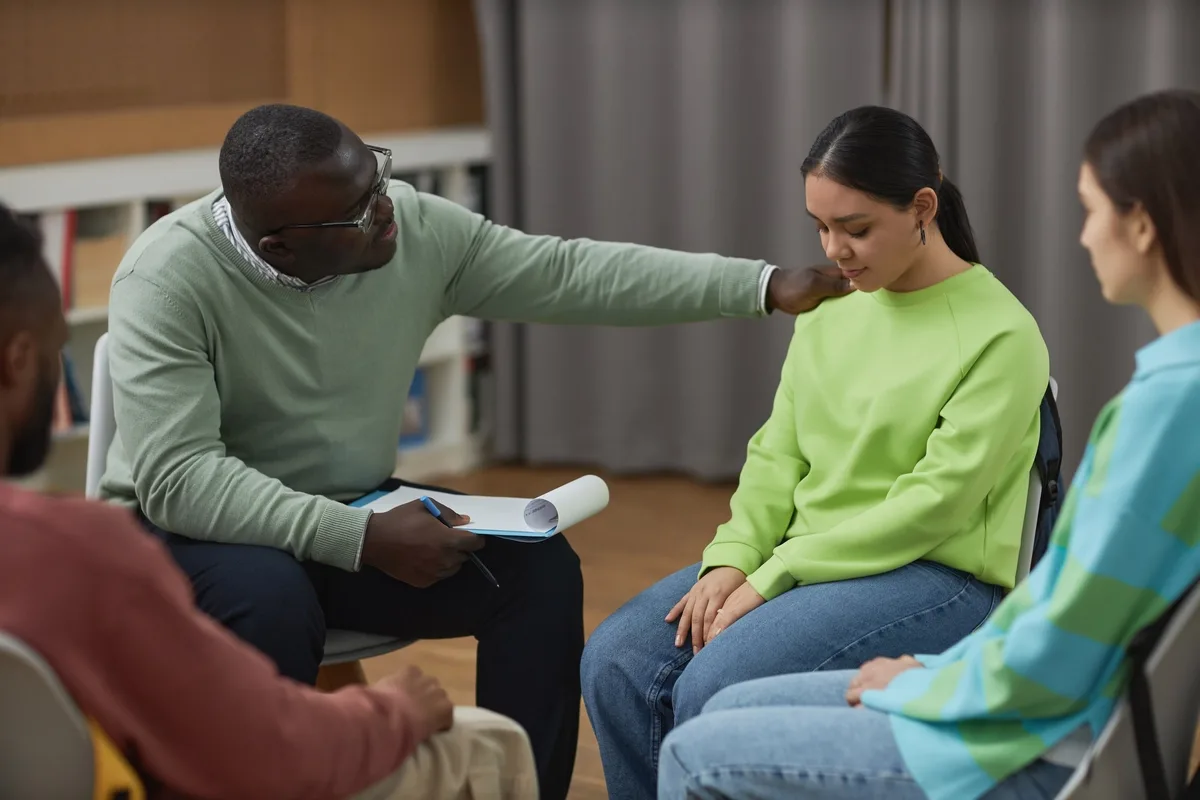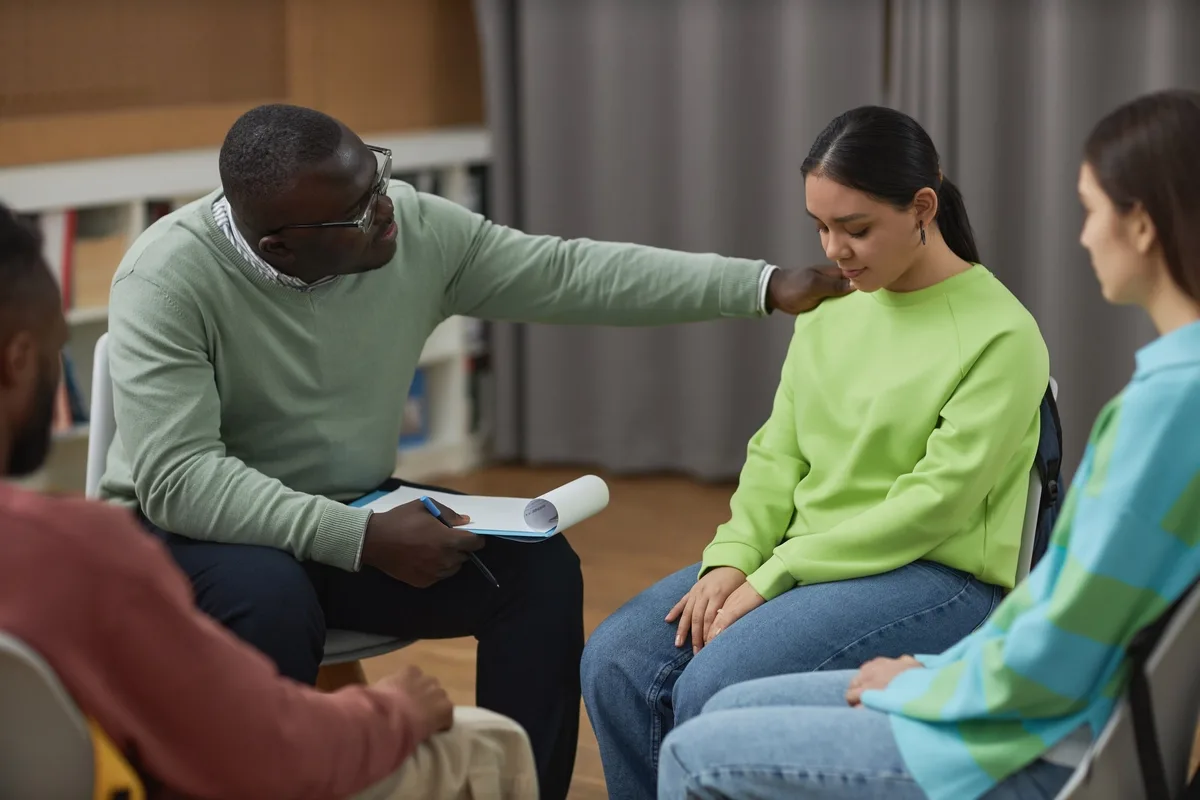24/7 Helpline:
(866) 899-221924/7 Helpline:
(866) 899-2219
Learn more about Medication-assisted Treatment centers in Rapides County
Medication-assisted Treatment in Other Counties

Other Insurance Options

Ceridian

Absolute Total Care

Anthem

Choice Care Network

Evernorth

Private insurance

Sutter

GEHA

Optum

MHNNet Behavioral Health

Group Health Incorporated

UnitedHealth Group

Health Net

Medical Mutual of Ohio

Self-pay options

CareFirst

BHS | Behavioral Health Systems

AllWell

Optima

Lucent

Edgefield Recovery Center
Edgefield Recovery Center is a drug and alcohol rehab center located in Cheneyville, LA. They provid...

Healing Springs Ranch
Located in Tioga, Texas, Healing Springs Ranch is a center for treating addiction and mental health ...

















Dellwood Recovery Center
Dellwood Recovery Center is a private rehab located in Mora, Minnesota. Dellwood Recovery Center spe...

Serenity Manor
Serenity Manor is a private rehab located in Mora, Minnesota. Serenity Manor specializes in the trea...

New Mexico Behavioral Health
New Mexico Behavioral Health is a public rehab located in Mora, New Mexico. New Mexico Behavioral He...

















































































































































































































































































































































































































